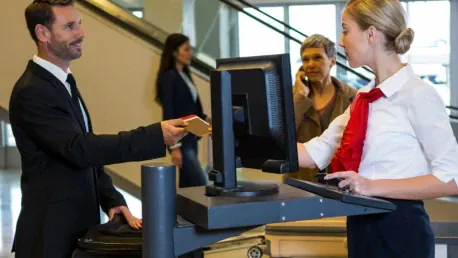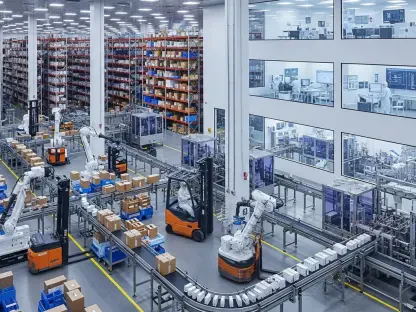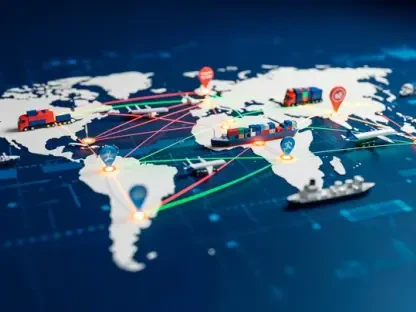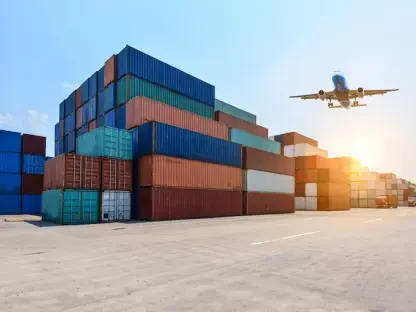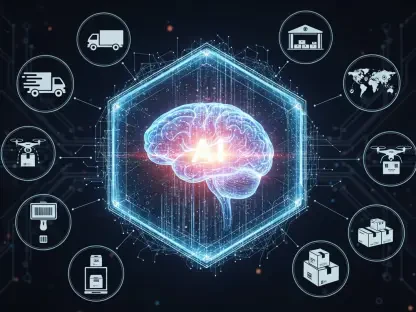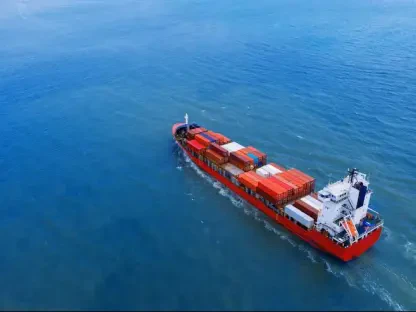Blockchain technology is often associated with cryptocurrencies like Bitcoin, but its potential extends far beyond digital currencies. Its core attributes—transparency, security, and efficiency—hold transformative possibilities for many sectors, including customs and global trade. Dubai Customs has recognized this potential and is at the forefront of adopting blockchain to revolutionize its operations. The upcoming Gitex 2024 event promises to showcase this bold technological endeavor, which aims to enhance transparency, streamline processes, improve security, and facilitate seamless cross-border trade.
Embracing Transparency in Customs Operations
One of the most compelling benefits of blockchain technology is its ability to bring unparalleled transparency to customs operations. Traditional customs processes often involve multiple intermediaries and lack real-time visibility, which can lead to delays, errors, and mistrust among stakeholders. Blockchain addresses these issues by providing a real-time, immutable ledger that all participants can access. In this new paradigm, every action taken within the customs process—such as the movement of goods, inspections, and approvals—is recorded on the blockchain. Stakeholders, ranging from importers and exporters to regulatory authorities, have access to this unified ledger, enabling them to verify information in real-time. This increased transparency not only reduces errors and fraud but also builds trust among international trade partners, a crucial factor for Dubai’s ambitions as a global trade hub.
Giving all participants access to the entire ledger ensures a level of transparency previously unattainable through traditional customs processes. Each transaction or change within the ledger is timestamped and recorded, providing an auditable trail of activities that can be traced back at any point. This helps in verifying the authenticity of products and compliance with various regulatory requirements, reducing the scope for fraudulent activities. Moreover, the transparent nature of blockchain helps in minimizing disputes that could arise from discrepancies in information, thereby fostering a more collaborative environment among different stakeholders. This level of oversight makes it easier for Dubai Customs to maintain its reputation as a reliable and transparent entity in a highly competitive global trade landscape.
Automating Customs Processes with Smart Contracts
Manual intervention in customs processes often leads to inefficiencies and delays. Through blockchain, Dubai Customs aims to automate many of these processes using smart contracts. Smart contracts are self-executing contracts where the terms of the agreement are directly written into code. These contracts automatically execute and enforce themselves when certain predefined conditions are met. For instance, in the clearance of goods, various documents such as invoices and certificates of origin need to be verified and validated. With smart contracts, these verifications can occur automatically, reducing the need for manual checks and paperwork. This automation not only speeds up the clearance process but also reduces operational costs and minimizes the risk of human error, making Dubai Customs more efficient than ever.
The implementation of smart contracts is expected to dramatically transform the operational landscape at Dubai Customs. By automating routine tasks such as document verification and data entry, smart contracts not only save time but also reduce the likelihood of human errors that often lead to delays and increased costs. For example, documents such as bills of lading and certificates of origin can be verified in real-time as they are uploaded to the blockchain. This real-time verification process eliminates the need for multiple layers of approval, thereby expediting the movement of goods through customs. Additionally, automating these processes ensures that all regulatory requirements are met without the need for constant manual oversight, thereby increasing the efficiency and reliability of customs operations.
Enhancing Security and Compliance
Security and compliance are critical in the customs sector, and blockchain’s inherent properties make it a robust solution to these challenges. Traditional systems are susceptible to tampering and fraud, but blockchain’s decentralized and cryptographic nature makes altering any recorded transaction nearly impossible. This ensures data integrity and provides a high level of security. Blockchain also aids in compliance with international trade regulations. The technology offers a transparent, auditable trail of all transactions, making it easier to meet regulatory requirements and avoid penalties. For Dubai Customs, this translates into a more reliable and trustworthy operation, reinforcing its reputation as a secure and compliant trading hub.
By providing a tamper-proof record of all transactions, blockchain makes it significantly more difficult for any unauthorized modifications to go unnoticed. Every transaction is encrypted and linked to the previous one, creating a chain of immutable records. This characteristic is particularly beneficial for complying with stringent international trade laws that require accurate and verifiable documentation. Furthermore, the transparency provided by blockchain makes it easier for auditors and regulatory authorities to trace and verify transactions, thereby simplifying the process of compliance. Dubai Customs’ commitment to using blockchain for enhancing security and compliance will not only help in mitigating risks but also in building a robust framework that can withstand the challenges of an ever-evolving regulatory landscape.
Facilitating Cross-Border Trade
Dubai’s strategic position as a global trade hub necessitates the smooth flow of goods across borders. However, cross-border trade is often riddled with complexities and delays due to the lack of a unified information-sharing platform. Blockchain aims to simplify these complexities by providing a seamless, integrated platform for information and document exchange. With blockchain, customs authorities from different countries can collaborate more efficiently. Shared, immutable records reduce the redundancy and inconsistencies that often plague international trade. This streamlined communication between customs authorities not only speeds up the clearance process but also reduces the risk of disputes, fostering a more harmonious international trade environment.
Blockchain serves as a common platform where all relevant parties can upload, share, and verify essential trade-related documents. This eliminates the need for repetitive data entry and reduces the possibilities of inconsistencies and discrepancies between different sets of records. When customs authorities from different nations operate on a shared blockchain network, the entire process of cross-border trade becomes smoother and faster. Information is available in real-time, which means delays caused by waiting for document verification or resolving discrepancies are significantly reduced. This enhancement in efficiency is crucial for maintaining Dubai’s status as a leading global trade hub, making it easier for businesses to operate smoothly across international borders.
Dubai Customs’ Innovations and Gitex 2024 Preparations
At the heart of Dubai Customs’ blockchain initiative is the “Customs Journey” project, which will take center stage at Gitex 2024. This project embodies the department’s focus on leveraging blockchain to transform trade and customs management fundamentally. Several key innovations will be showcased during the event.
Blockchain-Based Trade Documentation
Traditional paper-based trade documents are not only cumbersome but also susceptible to fraud and errors. Dubai Customs plans to replace these with digital documents recorded on a blockchain ledger. This shift will secure the management of trade documents, such as bills of lading and certificates of origin, making them easily accessible and verifiable.
This digital transformation not only curtails the risks associated with paper-based documents but also makes the entire documentation process much more efficient. With documents stored on a blockchain, all trade-related paperwork, whether it’s an invoice or a shipping manifest, can be instantly accessed and verified by authorized parties. This level of streamlined document management significantly reduces the chances of human error and fraud, as every change made to a document is recorded and traceable. Additionally, the elimination of paper-based processes results in faster clearance times, enabling goods to move more swiftly through customs checkpoints. This shift towards digital documentation also aligns with Dubai’s broader vision of becoming a leader in smart governance and digital transformation.
Smart Contracts for Customs Automation
The integration of smart contracts will be another highlight. These contracts will automate the verification and processing of trade documents, significantly reducing the need for manual intervention. This automation promises to expedite the clearance process, highlighting blockchain’s potential for efficiency gains and cost savings.
By implementing these smart contracts, Dubai Customs aims to set a new standard for automation in customs operations. Smart contracts will handle various necessary verifications such as checking for regulatory compliance and authenticating certificates of origin—all autonomously and in real-time. This will free up valuable human resources to focus on more complex tasks that require human intelligence. The smart contract system will not only make the customs process more efficient but will also contribute to greater reliability and accuracy. The upcoming Gitex 2024 will provide a platform for showcasing these advancements, offering attendees a glimpse into how blockchain technology can revolutionize traditional customs operations.
Collaborative Blockchain Ecosystems
Dubai Customs is also working on collaborative blockchain ecosystems involving other customs authorities, trade organizations, and technology providers. This initiative aims to create an integrated, transparent, and efficient global trade network. The Gitex 2024 presentation will illustrate how these collaborations can transform international trade practices, setting a new standard for global customs operations.
These collaborative efforts are designed to foster a more interconnected and cooperative trading environment on a global scale. By establishing a shared blockchain network with participation from various customs authorities, Dubai Customs seeks to eliminate barriers to information sharing and create a more streamlined process for international trade. This global blockchain network will facilitate real-time data exchange, improve the efficiency of trade document verification, and enhance the overall transparency of international trade activities. Dubai Customs’ vision is to create a cohesive ecosystem where all stakeholders, from local authorities to international businesses, can collaborate seamlessly, thereby reducing delays and disputes. This initiative is anticipated to set a new benchmark in global trade practices, showcasing the transformative potential of blockchain technology.
Setting a Global Benchmark
By adopting blockchain technology, Dubai Customs is not only enhancing its operations but also setting a global standard for innovation in customs and trade management. This pioneering move is likely to attract various international trade partners, thereby bolstering Dubai’s status as a global trade leader. Dubai’s commitment to integrating advanced technologies demonstrates its forward-thinking approach and ability to adapt to changing global dynamics. The transparency, efficiency, and security provided by blockchain will make Dubai Customs a model for other nations looking to modernize their customs operations.
Moreover, the successful implementation of blockchain solutions by Dubai Customs is expected to serve as a catalyst for broader adoption of the technology across the region. As other governments and organizations observe the tangible benefits realized by Dubai, they are likely to explore and invest in similar technologies. This could lead to a regional wave of technological adoption, fostering innovation and competitiveness. The Gitex 2024 event will be a significant milestone, showcasing how blockchain is reshaping the future of customs and trade management. By leading the way in blockchain utilization, Dubai Customs is not only boosting its operational efficiency but also paving the way for broader technological advancements that could redefine global trade norms.
Driving Regional Technological Adoption
Dubai’s commitment to blockchain could serve as a catalyst for broader regional technological adoption. The successful implementation of blockchain by Dubai Customs will likely inspire other organizations and governments in the region to explore similar technologies. Observing the efficiency, transparency, and security benefits realized by Dubai Customs, other entities will be motivated to invest in blockchain solutions to enhance their own operations. This domino effect could lead to widespread technological advancements, fostering a culture of innovation and competitiveness across the region.
As more organizations adopt blockchain, the overall efficiency and reliability of regional trade networks will improve. The establishment of a common technological framework enables smoother integration of processes and better collaboration among regional trade partners. This can lead to the development of standard protocols for cross-border trade, further simplifying and expediting international transactions. Dubai’s pioneering efforts in blockchain technology thus have the potential to not only elevate its own standing but also to catalyze a technological transformation across the entire region. This ripple effect will contribute to creating a more interconnected and efficient global trade environment, benefiting all stakeholders involved.
Fostering Innovation and Collaboration
Blockchain technology is commonly linked to cryptocurrencies like Bitcoin, but its capabilities go well beyond digital money. The key features of blockchain—transparency, security, and efficiency—hold the power to transform various industries, particularly customs and global trade. Dubai Customs has acknowledged this potential and is leading the way in using blockchain to overhaul its operations. The upcoming Gitex 2024 event is set to highlight this ambitious technological initiative. The goal is not just to improve processes but to significantly boost transparency, enhance security, and enable seamless cross-border trade.
At its core, blockchain offers a decentralized ledger that is immutable and transparent. This kind of technology could make customs procedures not only faster but also more reliable, reducing the risk of fraud and human error. It streamlines document verification processes, ensuring that information is easily accessible and cannot be tampered with. This, in turn, facilitates smoother and quicker trade across borders.
Dubai Customs’ adoption of blockchain technology serves as a model for other nations looking to modernize their customs operations. The Gitex 2024 event will provide a platform for showcasing how blockchain can be effectively integrated into existing systems, offering a glimpse into the future of global trade. This pioneering effort aims to set new standards in efficiency and security, ultimately paving the way for more efficient global commerce.
